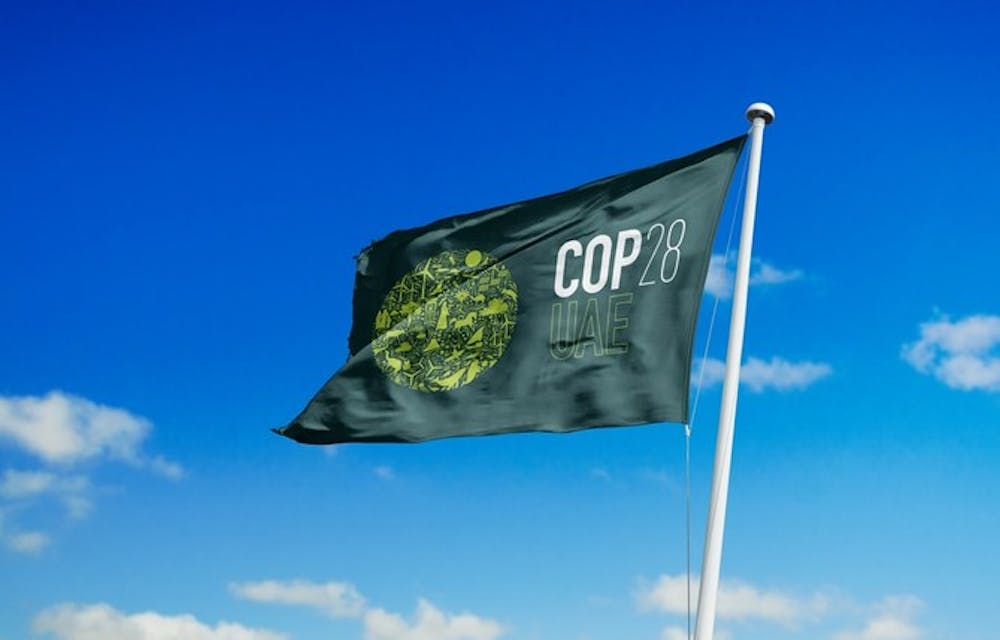
The Paradox of COP28 in the UAE
COP28's complex landscape: Advocacy, Oil, and the Struggle for Climate Solutions
As around 80,000 individuals will head to the United Arab Emirates (UAE) for this year's climate conference, which takes place in Dubai from November 30th to December 12th, the collision of perspectives on tackling the climate crisis becomes evident. While activists and progressives emphasize the necessity for drastic changes, the presence of lobbyists from oil companies and COP28 effectively being hosted in one of the world’s largest oil and gas producing countries, introduces a conflicting dynamic that could hinder the progress towards decisive climate actions.
What is the COP?
The United Nations Climate Change Conference, also known as the UN Climate Conference, is an annual gathering of countries that have adopted the UN Framework Convention on Climate Change (1992). Currently, there are 196 states and the European Union involved at COP (Conference of Parties).
Two of the more historic COP’s include the one held in Kyoto, Japan in 1997, rafting the first climate agreement called the Kyoto Protocol, that aimed to reduce the emission of gasses that contribute to global warming and the historic event in Paris, France, where the so-called “Paris Agreement” was established, marking the implementation of numerous ambitious goals. This included limiting global warming to 1.5 °C compared to pre-industrial levels, with a target to reduce net carbon dioxide emissions to zero by 2050.
What happens at COP28?
Eight years into our journey trying to achieve the 1,5 °C, this year's climate conference focuses will conduct, a mid-term assessment called the “Global Stocktake”. COP28 will address accelerating the transition to clean energy, reducing greenhouse gas emissions by 2030, securing financial support for climate action in the Global South, emphasizing nature and people, and striving to make the conference the most inclusive to date. Contradictions arise as human rights issues such as fear of surveillance, detention and repression surface. Many LGBTIQ+ climate activists plan to avoid COP28 due to concerns of fear of being detained at Dubai airport. Additionally, being gay is effectively considered a criminal offense in the UAE.
While many European countries advocate for a global expansion target for renewable energy, some countries, including France, South Korea, and the USA, plan an alliance for increased nuclear energy capacity. Switzerland will call for the “Global Stocktake” to identify gaps in climate mitigation, adaptation, and financing, seek recommendations applicable to all countries, especially those with high emissions, advocate for decisions on phasing out fossil fuels by 2050, and promote a causally fair fund for loss and damage at COP28. Swiss federal president Alain Berset (SP) and Federal Councillor Albert Rösti (SVP) will represent Switzerland at COP28.
Dubai, the COP of all paradoxes
While the choice of the United Arab Emirates as the host for this year's climate conference, given its status as one of the largest global oil producers, is already raising concerns, the criticism doesn't stop there. The president of the COP28 is Dr Sultan al-Jaber, Minister of Industry and Advanced Technology in UAE and head of the state owned oil company Abu Dhabi National Oil Company (ADNOC), which makes annually 33,92 Mrd selling fossil fuels. This personnel decision, along with the connected intersection of the economic interests of the oil company and the political objectives of the climate conference, has already faced criticism from climate activists and the media. Now, leaked documents reveal the UAE's intention to use COP28 to negotiate oil and gas deals with various countries. This raises questions about the authenticity of the host’s intentions, considering COP28's focus on advancing renewable energies and reducing dependence on fossil fuels. Each year's COP is becoming more and more crucial as the Intergovernmental Panel on Climate Change (IPCC) again emphasizes that achieving the 1.5°C target is essential to avoid the most harmful consequences of climate change.